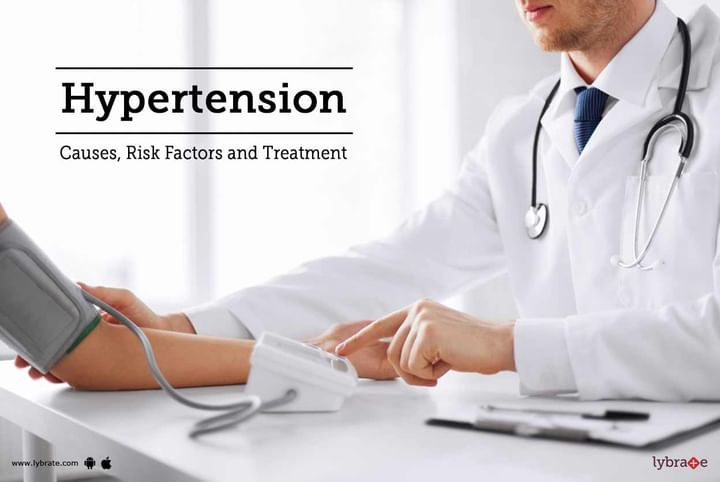Hypertension: Causes, Risk Factors and Treatment
Hypertension or high blood pressure can be defined as a condition wherein the thrust of the blood against the walls of the arteries is excessively high, thereby, increasing chances of health hazards. The amount of blood that is pumped by the heart and the resistance put up by the arteries usually determine one’s blood pressure count. For instance, if the heart pumps excess amount of blood while the arteries shrink, the blood pressure can soar high. High blood pressure or hypertension may give rise to symptoms such as nosebleeds, short breaths or headaches.
Causes
There are two types of hypertension, one is primary and the other is secondary. For essential or primary hypertension, there is no significant reason and the condition slowly develops over years. The secondary one appears all of a sudden as a result of a repressed condition such as thyroid or kidney problems, defective blood vessels and certain medications such as pain-killers, cold relievers, pills for birth control and others.
Other factors responsible for hypertension are:
- As you age it increases
- Family history
- Being obese or overweight
- Being physically inactive
- Consuming too much of sodium or salt in your diet
- Little intake of potassium and Vitamin D in meals
- Being subject to high levels of stress
- Chronic medical disorders such as diabetes
- Excessive alcohol consumption or drug abuse
Treatment
Medications:
- Thiazide diuretics can be administered. These help to flush out excess water and sodium from the body in order to reduce excessive volume of blood thrusting against the arteries.
- Beta blockers ease the workload of the heart by opening up the blood vessels.
- Angiotensin-converting enzyme (ACE) inhibitors help inhibit the production of chemicals narrowing the blood vessels.
- Angiotensin II receptor blockers (ARBs) are used to obstruct and curb the action of the chemicals contracting the blood vessels.
- Calcium channel blockers help to loosen the blood vessel muscles
- Renin inhibitors can delay the production of an enzyme called ‘renin’ by the kidneys that increase one’s blood pressure
Lifestyle changes:
- One should follow a well-balanced diet that comprises of less salt.
- There is no substitute to regular exercises. Exercising regularly helps one maintain a balanced body weight that further reduces the chances of this condition.
- Abstaining from smoking and limiting alcohol intake helps provide that holistic cover to all the treatment modes mentioned above. If you wish to discuss about any specific problem, you can consult a General Physician.



+1.svg)
